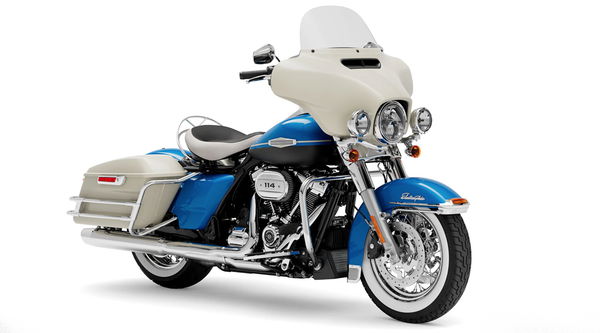Harley-Davidson stock price soars as EU defers 56% tariff
Harley-Davidson has managed to avoid a crippling EU tariff this week, causing its stock price to outperform the market

HARLEY-DAVIDSON stock was riding high yesterday, as the Milwaukee manufacturer avoided being slapped with a crippling 56% tariff to import bikes into the European Union.
Harley-Davidson LiveWire video review
The current tariff is 36% and Harley-Davidson CEO, Jochen Zeitz claimed the increase would have justifiably left Harley’s competitors with an ‘unfair competitive advantage’ in the EU.
Speaking in a statement, Jochen Zeitz, chairman, president, and CEO of Harley-Davidson said:
"We are encouraged by today's announcement that tariffs affecting our products will not escalate from 31% to 56%. This is the first step in the right direction in a dispute not of our making. Harley-Davidson employees, dealers, stakeholders, and motorcycles have no place in this trade war. These tariffs provide other motorcycle manufacturers with an unfair competitive advantage in the E.U. European motorcycles only pay up to 2.4% to be imported into the U.S. We want free and fair trade. UNITED WE RIDE."
As a result of the news, shares in Harley-Davidson rose +8.95% to $51.96 on a day that was largely unforgettable for the stock market. Both the S&P 500 index and Dow Jones Industrial Average saw stock falling.
Harley-Davidson also managed to outperform some of its closest rivals, with the HOG stock price outperforming BMW, Honda, and Polaris.

What are tit-for-tat tariffs and what does Airbus & Boeing have to do with it?
The European Union and the United States have been at loggerheads for some time now, with the spat relating to subsidies in the aerospace industry.
The US opened proceedings by filing a case to the World Trade Organisation (WTO) in 2006 that alleged that the EU-owned Airbus received $22 billion in illegal subsidies. The EU then counter-claimed that the US-owned Boeing had been handed $23 billion in ‘trade-distorting subsidies, most of which centred around its R&D projects.
From there, the tit-for-tat tariffs have continued, with neither side looking willing to back down. In June last year, Reuters reported that the US was open to negotiations on an "enforceable mechanism" that could allow Airbus to receive government funding on commercial terms and ease the risk of tit-for-tat sanctions.












